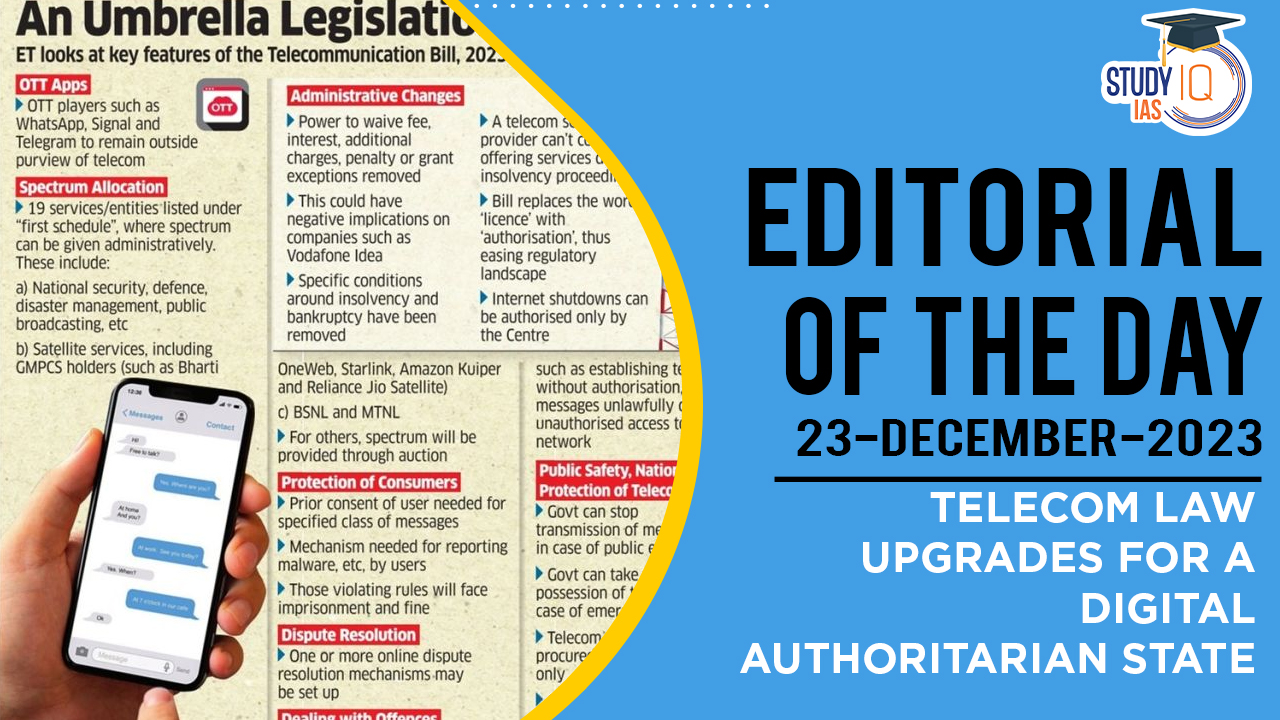Table of Contents
Context: The article criticises India’s Telecommunications Bill, 2023 for maintaining colonial-era laws and enhancing government control in the name of cultural nationalism, while failing to tackle the digital divide or introduce substantial innovations.
Controversies Surrounding the Telecommunications Bill 2023
- Cultural Nativism: Renaming the Universal Services Obligation Fund to “Digital Bharat Nidhi” symbolises a focus on national identity but overlooks practical solutions to the digital divide, as evidenced by stagnating telecom user growth and declining smartphone sales.
- Authoritarian Tendencies: Ambiguous terms in the Bill, like changing “licensing” to “authorisation,” could increase government oversight over OTT platforms and email services, threatening message security and privacy due to potential surveillance and interception.
- Favouring Corporations: The Bill’s provisions for non-auction allocation of satellite spectrum and regulatory sandboxes seem to disproportionately benefit large companies, raising fairness concerns.
- Lack of Transparency and Debate: The Bill’s hasty passage through Parliament, marked by minimal debate and opposition members’ suspension, indicates insufficient scrutiny and discussion.
We’re now on WhatsApp. Click to Join
Implications of the Controversy
- Cultural Nativity & Political Credit: The use of “Bharat” and alignment with the government’s vision suggests a strategy of cultural nativism and a political branding tactic.
- Constitutional Concerns: Critics view the Telecom Bill as a departure from constitutional governance, possibly eroding democratic principles.
Recommended Way Forward
The Telecom Bill should undergo thorough examination to ensure it serves the interests of all Indians, which involves open dialogue, expert involvement, and consideration of its impact on digital rights and privacy, aiming for a telecom policy that genuinely addresses the digital divide while maintaining democratic values.


 Places in News for UPSC 2025 for Prelims...
Places in News for UPSC 2025 for Prelims...
 New Phase of Operation Chakra to Combat ...
New Phase of Operation Chakra to Combat ...
 Soyuz Aircraft: History, Design and Sign...
Soyuz Aircraft: History, Design and Sign...





















